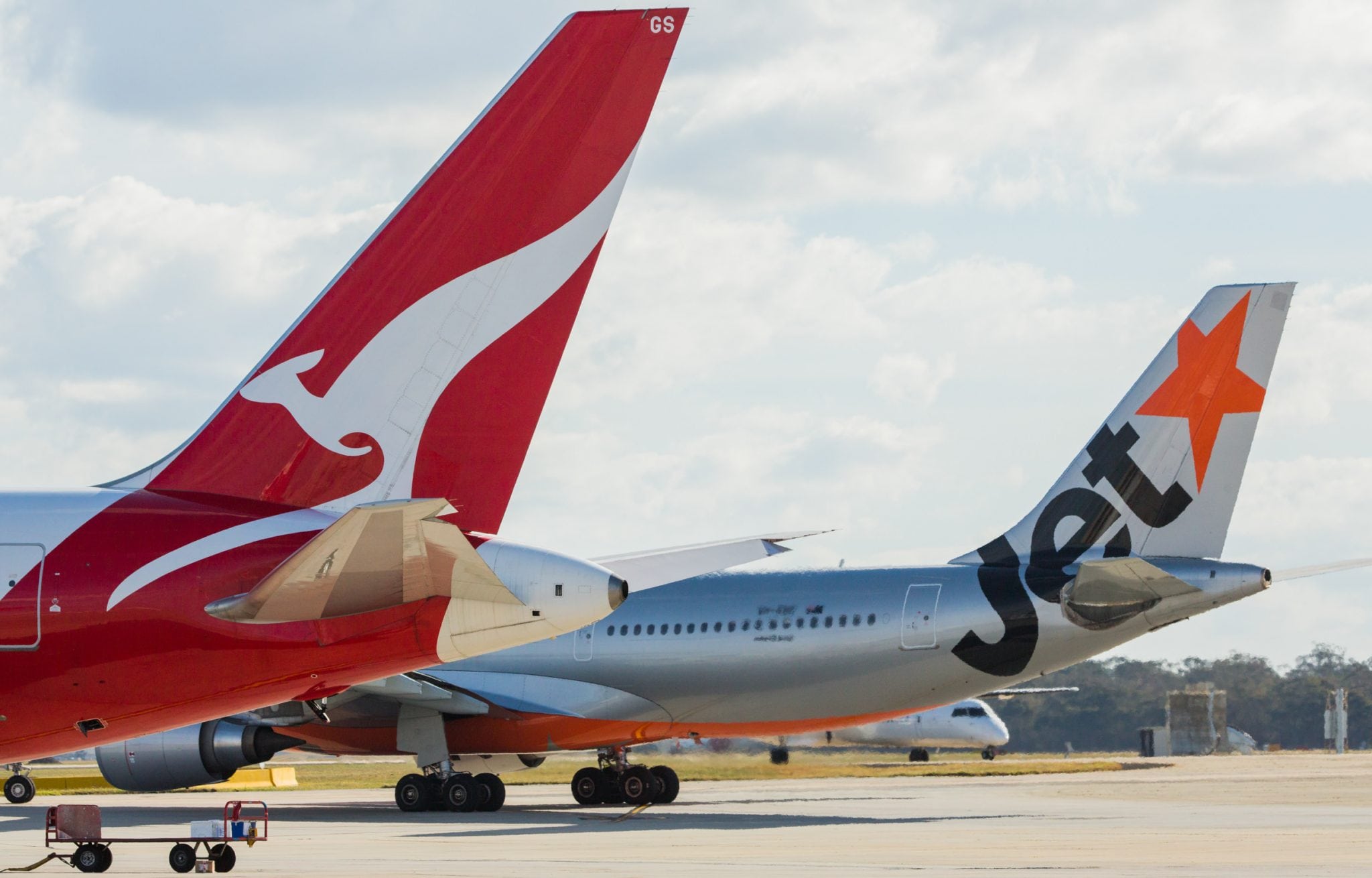With Jetstar Group, Qantas Succeeds Where Other Big Airlines Have Failed

Skift Take
For the past two decades, many major airlines have tried to thwart low-cost competitors by launching and investing in their own bargain brands.
Many of them have failed, unable to compete against more nimble, lower-cost competitors, such as Southwest Airlines and Ryanair. They were short-lived entrants such as Delta's Song, United's Ted, US Airways' MetroJet and Air Canada's Tango. Other major-airline supported discount carriers, including Lufthansa's Eurowings and ANA's Peach, are holding steady, but they're not necessarily thriving. A few, including Air Canada's new entry, Rouge, seem poised to succeed, but it's too early to know for sure.
But one discount airline brand might be doing better than the others. It's Jetstar Group, a collection of several discount airlines in Australia, New Zealand, and Asia. Qantas owns a major piece of all of them, and the group is run by Jayne Hrdlicka, previously an executive in charge of strategy at Qantas.
Qantas reported its 2016 fiscal year earnings on Wednesday, and CEO Alan Joyce repeatedly bragged about the performance of JetStar's main segments— Jetstar Airways (Australia and New Zealand), Jetstar Pacific (Vietnam), JetStar Asia (Singapore) and JetStar Japan.
The Jetstar carriers reported combined earnings before interest and taxes of $344 million (U.S.), nearly double what they reported in Qantas' 2015 fiscal year. Combined, they produced an operating margin of 12.4 percent for the fiscal year, also almost double the previous year. It's a big improvement from 2014, when the Jetstar airlines reported a combined loss.
For customers, the Jetstar brand seems relatively cohesive, but the ownership structure for the airlines is complicated. Qantas owns 49 percent of Jetstar Asia, with an investment firm holding the rest, while it owns 30 percent of Jetstar Pacific, with Vietnam Airlines having 70 percent. The Japanese business is owned by Qantas, Japan Airlines, Mitsubishi Corporation and Century Tokyo Leasing Corporation.
Qantas fully owns the two short-haul operations in New Zealand and Australia, as well as JetStar International, which operates 11 Boeing 787s between Australia and Asia.
Joyce said he is bullish on growth prospects for the three Asian-based airlines, saying they produced a $65 million (U.S.) year-over-year improvement in profitability in the recently completed fiscal year. JetStar Japan was profitable for the first time, Qantas said, while JetStar Asia improved its profit. The Vietnam business struggled slightly, Qantas said, as other airlines have also grown there.
All three Asian airlines remain relatively small, with each operating 20 or fewer aircraft. Qantas said Wednesday that JetStar Japan, the largest of the three Asian carriers with 20 Airbus A320s, will grow to 28 aircraft within three years.
"This is is a part of our group strategy that sometimes gets overlooked but Jetstar is rapidly becoming a major LCC player across all of Asia," Joyce said.
Overall, Joyce said growth in Asia will remain a big part of the strategy, both at Qantas and Jetstar.
"We are not waiting for that mega-trend to happen," Joyce told analysts on Wednesday. "We are actively positioning the group for longer-term success in the world's fastest-growing passenger market."




